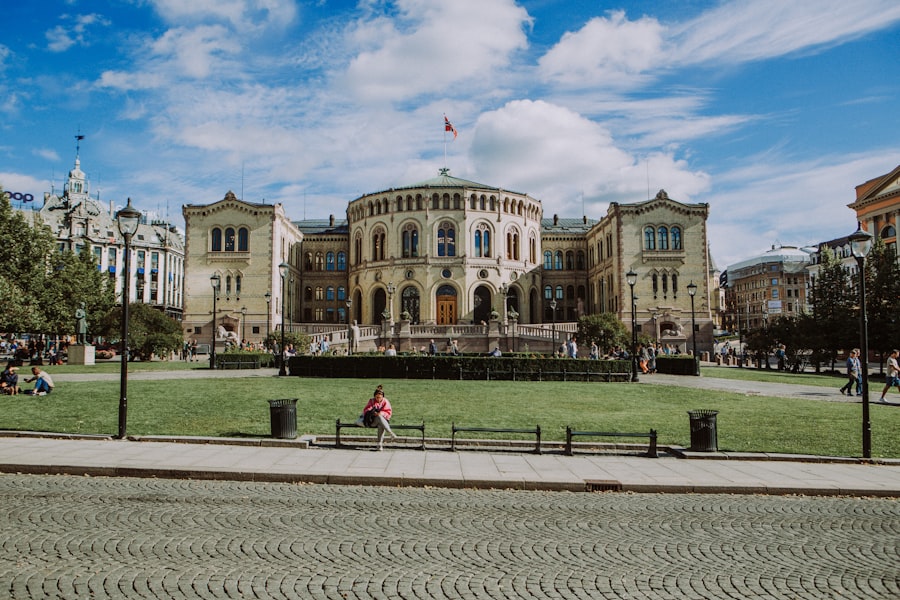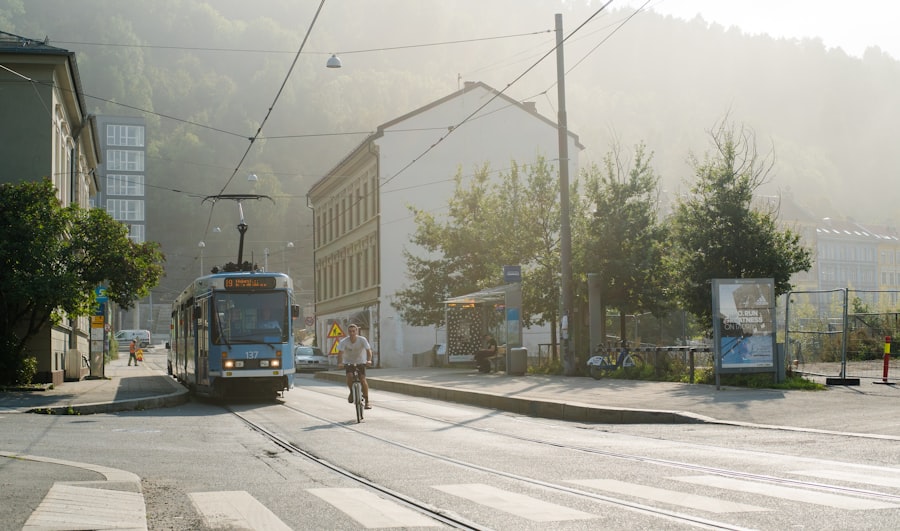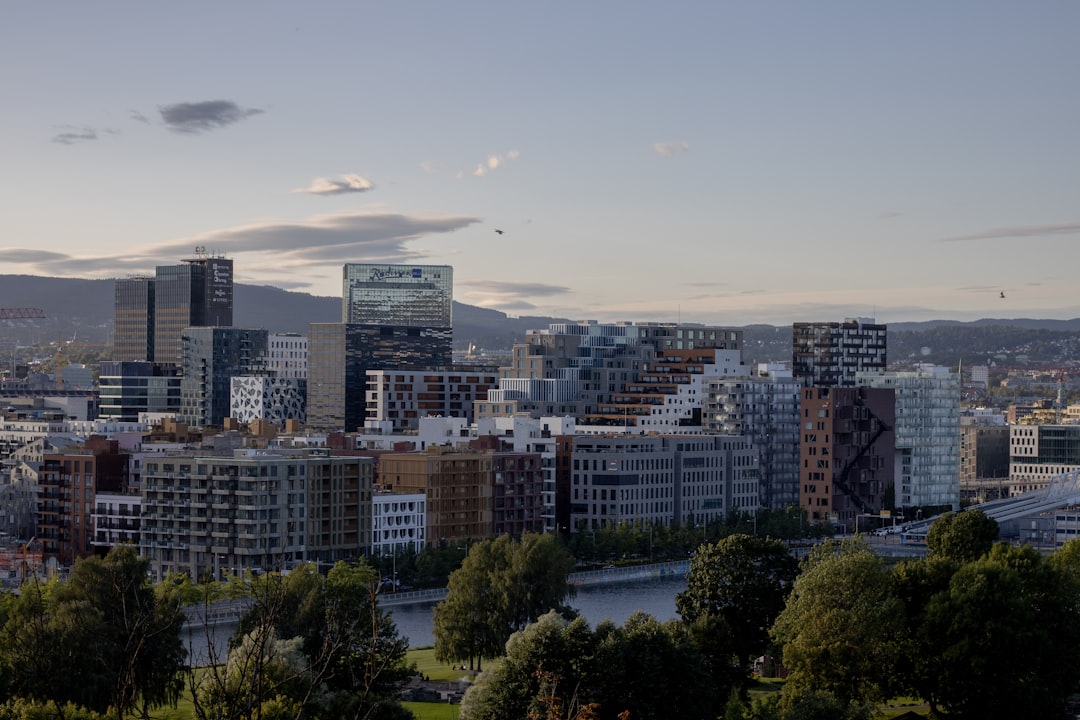Norway’s approach to early childhood education is often lauded for its progressive and holistic nature. Rooted in the belief that children learn best through exploration and interaction, the Norwegian system prioritises the development of the whole child rather than merely focusing on academic achievements. This philosophy is deeply embedded in the country’s cultural values, which emphasise equality, community, and respect for nature.
The early years of a child’s life are viewed as a critical period for laying the foundation for lifelong learning, social skills, and emotional well-being. In Norway, early childhood education is not merely a preparatory stage for formal schooling; it is a vital part of a child’s development. The government has established a framework that supports inclusive and high-quality education for all children aged one to six.
This framework is designed to ensure that every child has access to a nurturing environment that fosters creativity, curiosity, and critical thinking. As such, the Norwegian approach to early childhood education serves as a model for other countries seeking to create more effective and compassionate educational systems. Take the first step. Book a consultation with the Norway Relocation Group for your move to Norway. https://norwayrelocation.no/one-hour-strategy-session/
Summary
- The Norwegian approach to early childhood education prioritizes play-based learning and outdoor activities to foster holistic development in children.
- Outdoor learning is considered essential in Norwegian early childhood education, as it promotes physical activity, exploration, and connection with nature.
- Norwegian early childhood education places a strong emphasis on social and emotional development, encouraging children to develop empathy, communication, and problem-solving skills.
- Teachers in Norwegian early childhood education are seen as facilitators of learning, creating a supportive and inclusive environment for children to explore and learn at their own pace.
- Inclusion and diversity are key principles in Norwegian early childhood education, aiming to create an environment where all children feel valued and respected for their unique backgrounds and abilities.
The Role of Play in Norwegian Early Childhood Education
Play is at the heart of the Norwegian early childhood education system. It is recognised as a fundamental aspect of children’s learning and development, providing them with opportunities to explore their environment, develop social skills, and express their creativity. In Norwegian kindergartens, play is not seen as a mere pastime; rather, it is an essential vehicle through which children engage with the world around them.
Educators are trained to facilitate play-based learning experiences that encourage children to take risks, solve problems, and collaborate with their peers. The emphasis on play also reflects a broader understanding of child development that values emotional and social growth alongside cognitive skills. Through play, children learn to navigate relationships, manage their emotions, and develop resilience.
This approach aligns with the Norwegian belief in fostering a sense of community and belonging among children. By prioritising play in early childhood education, Norway acknowledges that learning is a multifaceted process that occurs in various contexts and through diverse experiences.
The Importance of Outdoor Learning in Norwegian Early Childhood Education

Outdoor learning holds a prominent place in the Norwegian approach to early childhood education. The country’s stunning natural landscapes provide an ideal backdrop for experiential learning, allowing children to connect with nature while developing essential life skills. Outdoor activities are integrated into the daily routines of kindergartens, where children are encouraged to explore forests, parks, and other natural settings.
This immersion in nature not only enhances physical health but also fosters a sense of wonder and curiosity about the world. Moreover, outdoor learning promotes environmental awareness and sustainability from an early age. Children engage in activities such as gardening, nature walks, and seasonal celebrations that deepen their understanding of ecological systems and their role within them.
This connection to nature is vital in cultivating a sense of responsibility towards the environment, which is a core value in Norwegian society. By prioritising outdoor learning, Norwegian early childhood education nurtures not only the physical and cognitive development of children but also their emotional connection to the natural world.
The Emphasis on Social and Emotional Development in Norwegian Early Childhood Education
In Norway, social and emotional development is considered just as important as cognitive growth in early childhood education. The curriculum is designed to foster interpersonal skills, empathy, and emotional intelligence among young learners. Educators create supportive environments where children feel safe to express their feelings and develop healthy relationships with their peers.
This focus on social-emotional learning helps children navigate challenges and build resilience, equipping them with essential life skills. The importance placed on social and emotional development reflects Norway’s commitment to creating inclusive communities where every child feels valued and respected. Educators are trained to recognise the unique needs of each child and to provide tailored support that promotes positive interactions and conflict resolution.
By prioritising these aspects of development, Norwegian early childhood education prepares children not only for academic success but also for meaningful participation in society.
The Role of Teachers in Norwegian Early Childhood Education
Teachers play a pivotal role in the Norwegian early childhood education system, serving as facilitators of learning rather than traditional instructors. They are trained to observe children’s interests and strengths, using this knowledge to create engaging learning experiences that resonate with each child’s unique personality. This approach allows educators to foster a sense of agency among children, encouraging them to take ownership of their learning journey.
Moreover, teachers in Norway are expected to build strong relationships with families and communities. They work collaboratively with parents to ensure that children’s needs are met both at school and at home. This partnership between educators and families is crucial in creating a cohesive support system for children, reinforcing the values of respect and cooperation that underpin Norwegian society.
By prioritising the role of teachers as facilitators and collaborators, Norway ensures that early childhood education remains responsive to the diverse needs of its young learners.
Inclusion and Diversity in Norwegian Early Childhood Education

Inclusion and diversity are fundamental principles of Norwegian early childhood education. The system is designed to accommodate children from various backgrounds, including those with special needs or different cultural heritages. Educators are trained to create inclusive environments where every child feels welcome and valued, regardless of their individual circumstances.
This commitment to inclusion reflects Norway’s broader societal values of equality and respect for diversity. The curriculum encourages children to learn about different cultures and perspectives, fostering an appreciation for diversity from an early age. Activities that celebrate various traditions and customs help children develop empathy and understanding towards others.
By promoting inclusion and diversity within early childhood education, Norway aims to cultivate a generation of compassionate individuals who are equipped to thrive in an increasingly interconnected world.
The Integration of Nature and Sustainability in Norwegian Early Childhood Education
Norwegian early childhood education places a strong emphasis on integrating nature and sustainability into the curriculum. This focus reflects the country’s deep-rooted connection to the environment and its commitment to fostering ecological awareness among young learners. Children are encouraged to explore their natural surroundings, engage in outdoor activities, and learn about sustainable practices such as recycling and conservation.
Through hands-on experiences in nature, children develop a sense of responsibility towards the environment while also enhancing their physical health and well-being. Educators incorporate lessons about ecosystems, biodiversity, and climate change into their teaching practices, ensuring that children understand the importance of protecting the planet for future generations. By prioritising nature and sustainability in early childhood education, Norway aims to instil a sense of stewardship among its youngest citizens.
Parental Involvement in Norwegian Early Childhood Education
Parental involvement is highly valued within the Norwegian early childhood education system. Educators actively encourage parents to participate in their children’s learning experiences, recognising that families play a crucial role in supporting development. Regular communication between teachers and parents fosters a collaborative approach to education, ensuring that children’s needs are met both at home and in school.
Parents are often invited to engage in various activities within kindergartens, from volunteering during events to participating in workshops that promote parenting skills. This involvement not only strengthens the bond between families and educators but also creates a sense of community among parents themselves. By prioritising parental involvement, Norway reinforces the idea that education is a shared responsibility that extends beyond the classroom.
The Curriculum and Pedagogy of Norwegian Early Childhood Education
The curriculum of Norwegian early childhood education is characterised by its flexibility and focus on holistic development. It encompasses various areas of learning, including language, mathematics, arts, physical activity, and social studies. However, rather than adhering strictly to predetermined outcomes, educators are encouraged to adapt their teaching methods based on children’s interests and developmental stages.
Pedagogy in Norway emphasises child-centred approaches that prioritise exploration, creativity, and critical thinking. Educators create rich learning environments where children can engage with materials and ideas at their own pace. This flexibility allows for a more personalised learning experience that respects each child’s unique journey while fostering a love for learning that lasts a lifetime.
Assessment and Evaluation in Norwegian Early Childhood Education
Assessment in Norwegian early childhood education takes on a formative approach rather than focusing solely on standardised testing or rigid evaluations. Educators observe children’s progress through ongoing assessments that consider their social-emotional development alongside cognitive skills. This holistic view allows teachers to identify areas where children may need additional support while celebrating their achievements.
The emphasis on formative assessment aligns with Norway’s commitment to creating supportive learning environments where children feel safe to take risks and explore new ideas. Feedback is provided in constructive ways that encourage growth rather than instilling fear or anxiety about performance. By prioritising formative assessment practices, Norway ensures that early childhood education remains focused on nurturing each child’s potential rather than merely measuring outcomes.
Challenges and Future Directions in Norwegian Early Childhood Education
Despite its many strengths, the Norwegian early childhood education system faces several challenges as it seeks to adapt to changing societal needs. One significant issue is ensuring equitable access to quality education for all children across urban and rural areas. While many kindergartens offer excellent programmes, disparities can exist based on location or socioeconomic factors.
Looking ahead, there is an increasing recognition of the need for continuous professional development for educators to keep pace with evolving pedagogical practices and societal expectations. Additionally, integrating technology into early childhood education presents both opportunities and challenges as educators strive to balance screen time with hands-on experiences. As Norway continues to refine its approach to early childhood education, it remains committed to fostering inclusive environments that prioritise play-based learning, social-emotional development, and environmental awareness.
The future direction will likely involve further collaboration between educators, families, and communities to ensure that every child receives the support they need to thrive. In conclusion, Norway’s approach to early childhood education exemplifies a commitment to nurturing well-rounded individuals who are prepared for both academic success and meaningful participation in society. With its emphasis on play-based learning, outdoor experiences, social-emotional development, inclusion, parental involvement, flexible curricula, formative assessment practices—and importantly—the integration of nature and sustainability into everyday learning experiences—Norwegian early childhood education stands as an inspiring model for educators worldwide.
For those interested in immersing themselves further into this enriching educational philosophy while also exploring the beautiful language of Norway itself, consider enrolling in one of the Norwegian courses offered at the NLS Norwegian Language School in Oslo. These courses not only provide language skills but also offer insights into Norway’s culture and values—an invaluable complement for anyone looking to understand or engage with this remarkable country more deeply.
Learn more about the Norwegian classes at the NLS Norwegian Language School in Oslo

